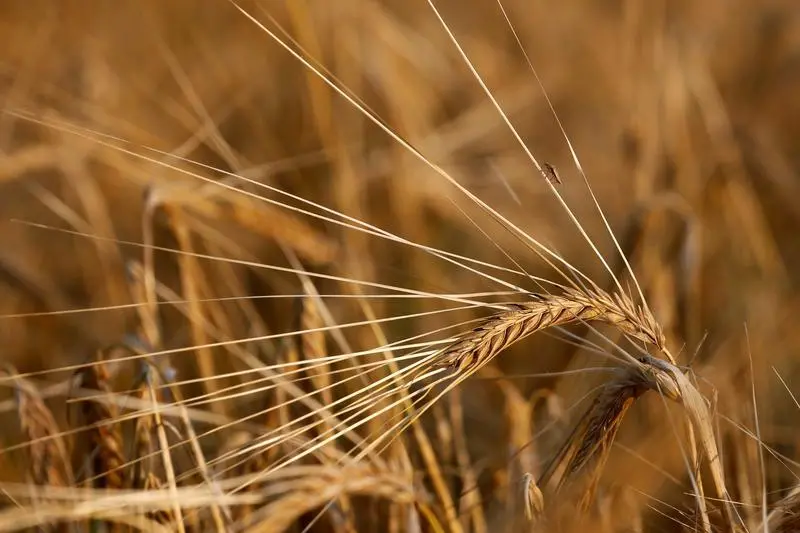PHOTO
PARIS/CANBERRA- Chicago wheat futures climbed nearly 2% on Tuesday to a two-month peak after official data underscored poor conditions for drought-hit U.S. spring wheat.
Chicago corn rose, with a lower than expected weekly crop rating focusing attention back on dry conditions in parts of the Midwest.
Soybeans rebounded after being pressured by a slide in crude oil on Monday, with warm and dry weather forecast in northerly U.S. growing belts, raising supply concerns in the run-up to the oilseed's key summer growth period.
The most active wheat futures on the Chicago Board of Trade were up 1.9% at $7.11-1/4 a bushel at 1020 GMT, having earlier touched their highest since May 18 at $7.18.
The U.S. Department of Agriculture (USDA), in a report released after Monday's market close, rated 11% of U.S. spring wheat as good or excellent, down from 16% a week earlier and below analysts' average estimate of 15%.
The USDA had last week projected that U.S. spring wheat production would shrink to its lowest in 33 years.
Concern about harvest yields and quality in Europe and the Black Sea region also supported wheat prices.
Kazakhstan plans to limit exports of barley and wheat used for animal feed and ban exports of rye for six months because of drought, a Kazakh government source told Reuters.
Harvest estimates in Russia, the world's biggest wheat exporter, have been lowered after disappointing yields in southern Russia.
In western Europe, a warm spell is allowing fields to dry out after heavy rain caused flooding in some regions, but concern remains over reduced grain quality for milling.
CBOT corn was up 1.6% at $5.61-1/4 a bushel while soybeans were up 1.4% at $13.91-1/4.
The USDA left unchanged its good/excellent score for U.S. corn at 65%, short of an analyst consensus for 66%. It raised the soybean rating by 1 point to 60%, in line with expectations.
"Conditions are still much too dry, especially in the north and west of the Corn Belt," Commerzbank said in a note.
The corn market is also assessing harvest progress in Brazil, where farmers are bringing in a second corn crop that has been hurt by drought and frost.
(Reporting by Gus Trompiz in Paris and Colin Packham in Canberra Editing by David Goodman) ((gus.trompiz@thomsonreuters.com; +33 1 49 49 52 18; Reuters Messaging: gus.trompiz.thomsonreuters.com@reuters.net))





















